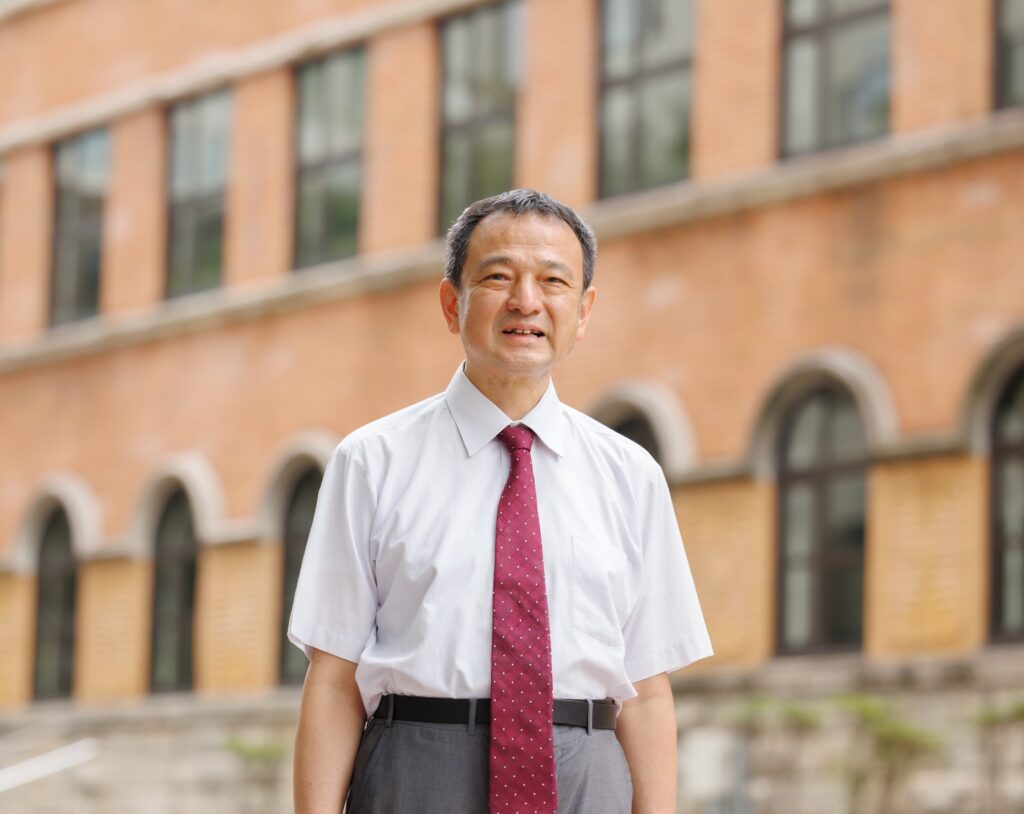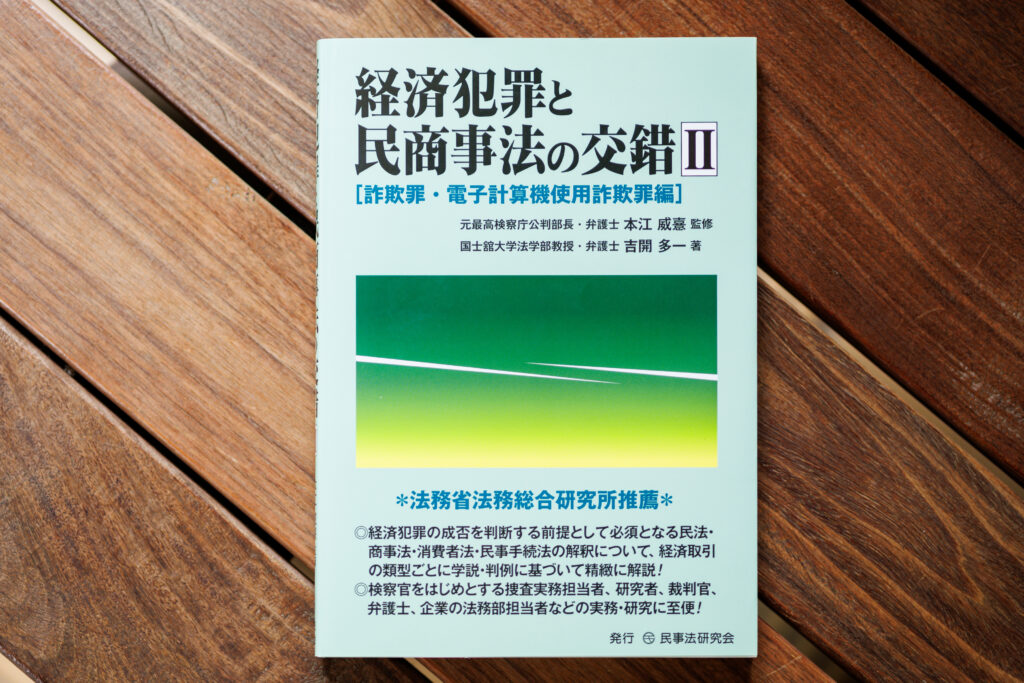
Professor Wataru Itou from the Faculty of Law conducts research spanning from the application of fraud and embezzlement to the appropriateness of relevant laws. He talks about the significance of researching laws related to crime, from the comparison of factors establishing fraud to scams that make use of social media.
My area of research is criminal law, with a focus on property crimes. Fraud and embezzlement are typical property crimes where perpetrators pretend to be businesses to deceive victims and appropriate their property undetected. The Toyota Shoji incident, a fraud using gold bullion that occurred in the latter half of the 1980s, resulted in a total loss of 200 billion yen with several tens of thousands of victims nationwide, the majority of who were elderly.
Fraud and embezzlement are crimes where anyone can be a victim. I want to help reduce as much as possible the number of people who get drawn into these crimes. This led me to embark on research into fraud and embezzlement.
In legal research, we consider what laws can be applied and what verdict might be given to cases of incidents which we frequently hear of but have not yet come to court, as well as compare verdicts of multiple cases that have been already been judged.
Research is a battle with many source materials. I start by looking for documents and judicial precedents related to the research theme and immerse myself in the material to conducts a through deep read of the documents. Then, I consolidate my thoughts into an academic paper. Depending on the research theme, there are times when I propose new laws.
Being deceived into making deals may not necessarily constitute fraud

One of my research themes is to compare the factors establishing fraud. Legally, fraud refers to the disposition of property—that is to say, the payment of money and such—arising from the act of deceiving people. However, looking at past judicial precedents, even when this condition is satisfied, there are cases where fraud was not established.
For example, fraud was established in a precedent where a person without appropriate qualifications posed as a qualified doctor and received a salary. On the other hand, in a case where an unqualified person posed as a doctor saw patients and made them buy medicine prescribed for treatment, fraud was not established as the other party did not suffer property losses.
From several judicial precedents, including those mentioned, for the establishment of fraud, I think it is necessary to have actual losses that go beyond simply the payment of money.
General research of criminal law also helps in developing measures to prevent losses from crimes. For example, identity checks have become more stringent when transferring money at counters of banks and such. This was studied and proposed by researchers to protect money in accounts as it is difficult to recover property after falling victim to bank transfer fraud. Criminal law research contributes not just to laws but also to society in various ways.
Monitoring changes in crimes and thinking about laws that are useful to society
I find my research interesting from the perspective that I am looking at crime—a world that is very much outside the realm of our daily lives—from the aspect of law. This stimulates my intellectual curiosity. Today, there is an increase in bank transfer fraud using social media and such, and with even fewer opportunities for people to meet face to face in the future, I expect we will see new criminal techniques.
Keeping in mind the basic principles of the criminal law, I intend to think about the ideal shape of laws that are useful to society while paying attention to such changes in society and crime. Punishment for crimes cannot be too strict, but they also cannot be too lax. An appropriate balance is necessary. I hope my research will serve as a guide for thinking about such legal balance.
Now that I have worked as a researcher for more than 25 years, going forward, I will look back at my past research and examine if they remain appropriate for today’s society. It may be difficult to approach during classes, but I hope to convey the charm of such laws that are useful to our daily lives.
The book I recommend
“Keizai Hanzai to Minshojiho no Kosaku 2”(Financial Crimes and Its Relation to Civil and Commercial Laws Volume 2)
by Taichi Yoshikai and supervised by Takeyoshi Hongo, Minjiho Kenkyukai

This book uses theories and judicial precedents to discuss financial crimes from the perspective of the civil code and the commercial code. Another feature is that it was written by prosecutors, other criminal justice practitioners, and lawyers. As someone who had heavily focused on the criminal law, it became an important book that taught me about the diversity of perspectives.
-
Wataru Ito
- Professor
Department of Law
Faculty of Law
- Professor
-
Graduated from the Faculty of Law, The University of Tokyo, and completed the doctoral program of the university’s Graduate Schools for Law and Politics. Took on the position of associate professor at the Department of Business Law, Faculty of Law, Toyo University before assuming his current position in 2012.
- Department of Law
Interviewed: September 2023